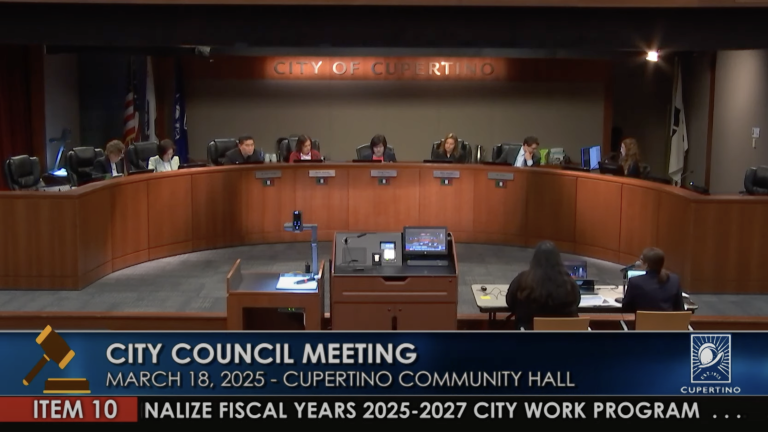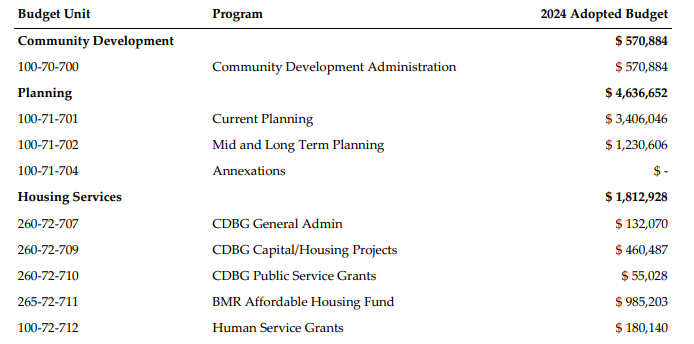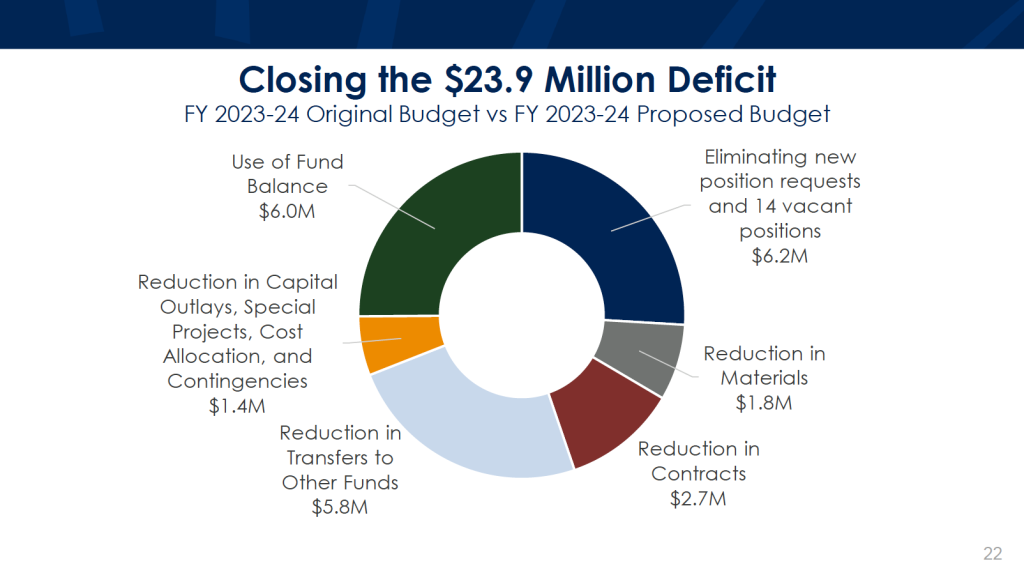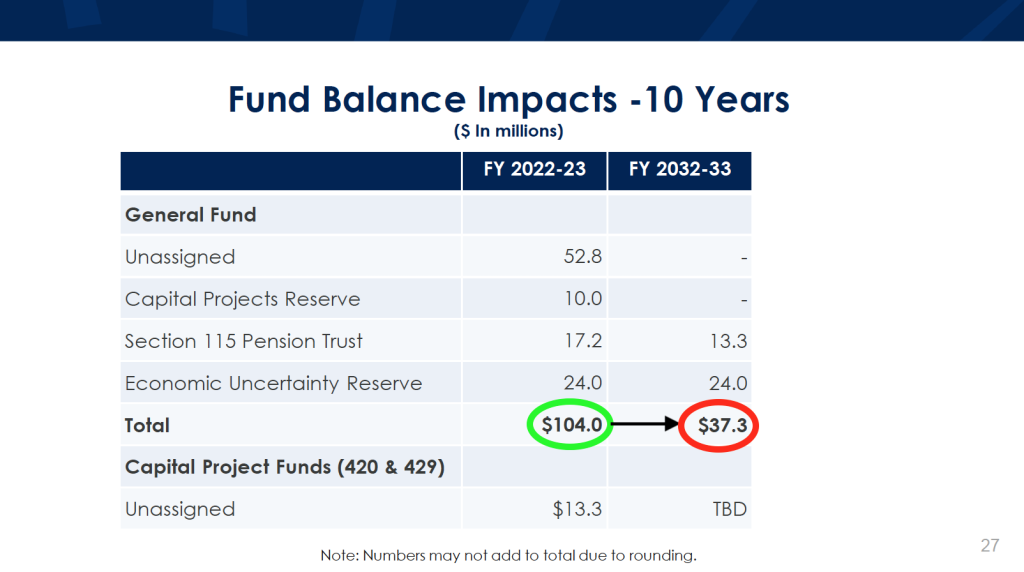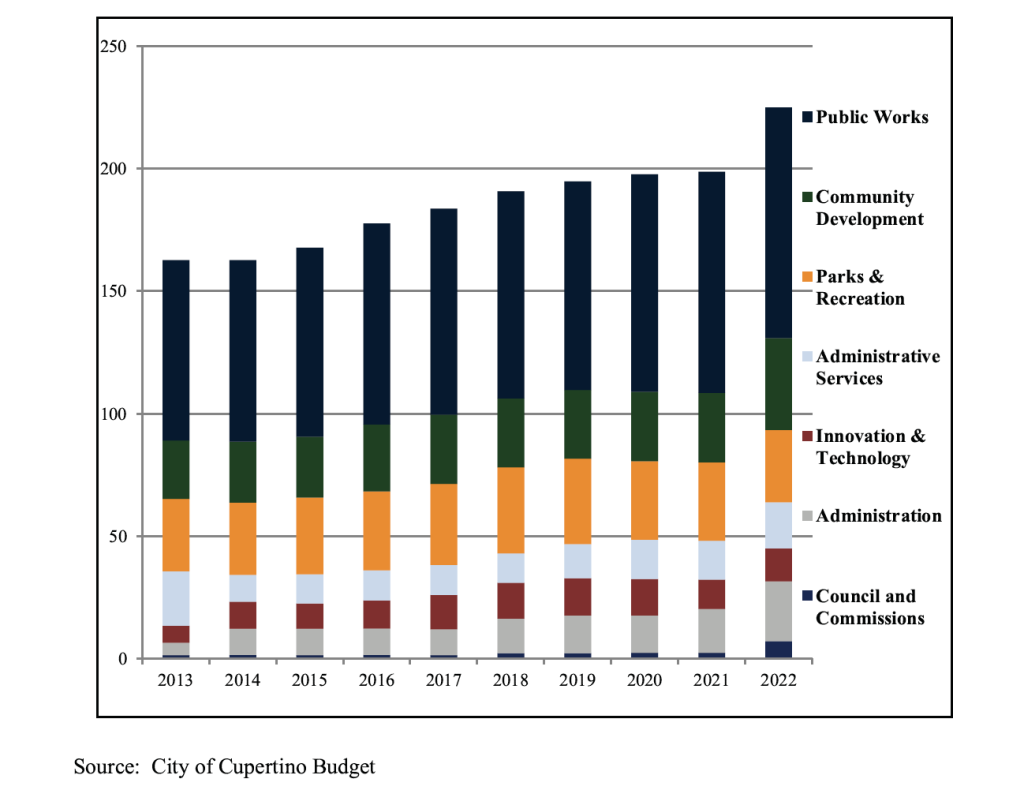In the March 18th City Council meeting, Mayor Liang Chao, Vice Mayor Kitty Moore, and Councilmember Ray Wang voted to approve the 2025-27 Cupertino City Work Program, which seeks to improve economic growth, fiscal sustainability, and public health and quality of life in Cupertino. Councilmembers Fruen and Mohan voted against the 2025-27 City Work Program.
The new initiatives are summarized below (view the full list here):
- Economic Development for Retail and Small Businesses: Streamline permitting for small businesses, explore options to retain and recruit businesses, explore themed events like restaurant weeks and festivals, explore creation of a small business council, restore the Economic Development Committee, and explore a Grants Analyst position.
- Permit Streamlining and Simplification for Small Home Upgrades: This will be a suite of improvements to (1) improve access to, and (2) speed the processing of permits for small home upgrades to enhance compliance and improve efficiency. This includes setting SLA’s, customer service KPI’s, and internal staff expertise to reduce consulting expenses.
- Financial, Investment, and Cashflow Policy Review: Review and assess the City’s investment policy and best practices. Establish a cashflow management policy with the goal to reduce the total percentage in cash from 20% to 2% and to reduce the total percentage in cash and cash-equivalent to at most 10%, on par with other cities.
- Defensible Impact Fee Nexus Study for Traffic Impact Fee, Retail Impact Fee, BMR Impact Fee, and Parkland Impact Fee: Review impact fees and other means of offsetting conversion of commercial land uses to residential to ensure impact fees are defensible against legal challenges.
- Enhance Senior Services: Utilizing survey results conducted in 2022 and 2023, consider consultant services similar to Palo Alto or Saratoga Senior Center to enhance services, while reducing cost to the city.
- City Hall Retrofit and City Hall Annex Renovation including the EOC: Implement the previously approved 2022 Council plan with EOC migration funds
- Planning for Optimal Use of City Properties: Future planning strategies for Stocklmeir house/ garages, Blech House, Blue Pheasant, McClellan Barn, and the house at the entrance of Blackberry Farm, with a goal of judicial use of city-owned properties. Investigate potential purchase of CUSD Finch/Phil property.
- Emergency Operations Readiness: Review fire, earthquake tornado, active shooter, Tsunami, hazardous transport accident policies. Ensure EOC is active and functioning with a permanent position, not a consultant.
- 5G Ordinance: Prepare an ordinance to regulate small cellular facilities in the public right of way.
- Unhoused Policies: Determine best practices for limited-budget smaller cities to manage the unhoused. Review RV practices in surrounding cities for impacts and potential adoption. Review transitional housing outcomes in surrounding cities. Policies to include nimble contingency plans.
- Water Conservation Policies: Reduce irrigation while increasing pollinator-supporting vegetation (turf conversion). Optimize irrigation systems including CUSD use agreement sites.
- Urban Forest Program: Create an Urban Forest Master Plan that includes an updated and expanded tree list which will increase the number of trees, enhance the City’ s tree canopy, and promote landscaping throughout the City
- Add notifications for SB 330 and other projects during the application and approval process: Consider a community meeting requirement for any major project application, especially those requiring a general plan amendment, as some other cities have adopted. Consider increasing notification radius from 300 feet to 500 (or 1,000) feet for any project application, especially those requiring a general plan amendment. Improve notification methods for SB 330 preliminary applications, streamlined projects not requiring planning/council approval, and other projects
While many of the items reflect the fresh perspective of the new Council majority, the plan also continues several work program items from the prior council, including bicycle facilities, preserving and developing BMR housing, and the Vision Zero plan to reduce fatalities and severe injuries on roadways by 2040.
Once approved, staff determines the resources needed to accomplish each Work Program item, and requests them during the Budget Adoption process. Via the staff report, the 2025-27 Cupertino City Work Program “will officially launch in July at the start of the new fiscal year.” Projects in the City Work Program are expected to consume about 10% of City staff time. The remainder of their time is largely devoted to day-to-day operations.
Read more about Cupertino’s City Work Program here: https://www.cupertino.gov/Your-City/City-Council/City-Work-Program
